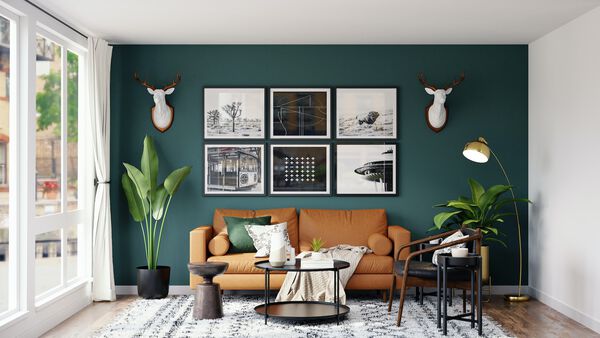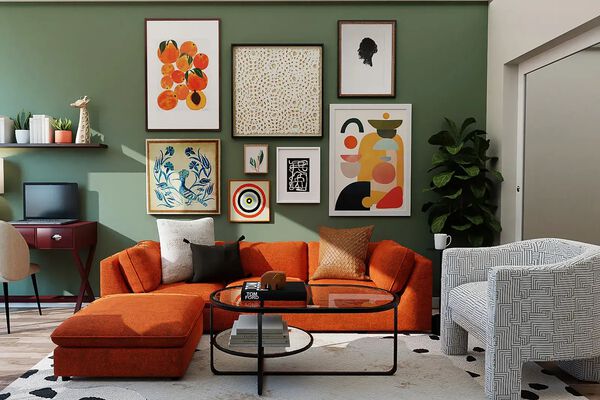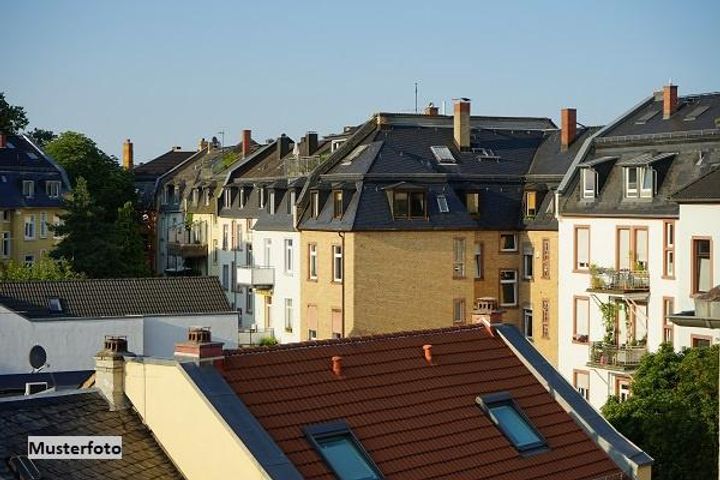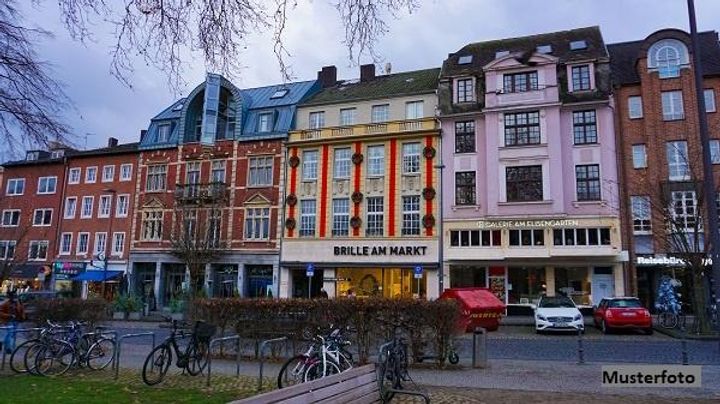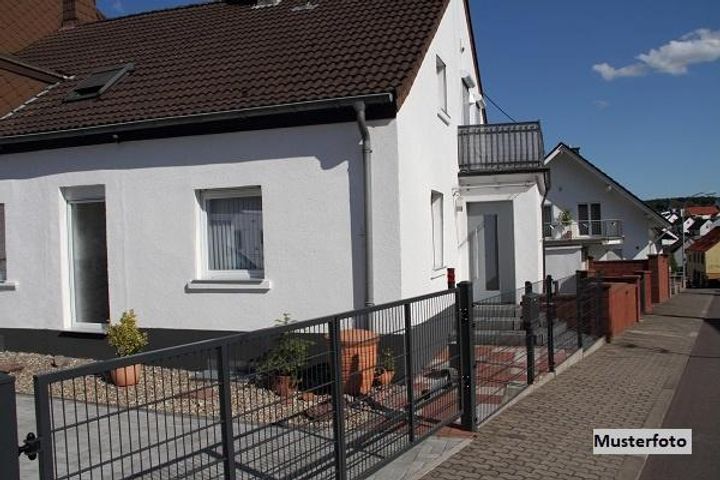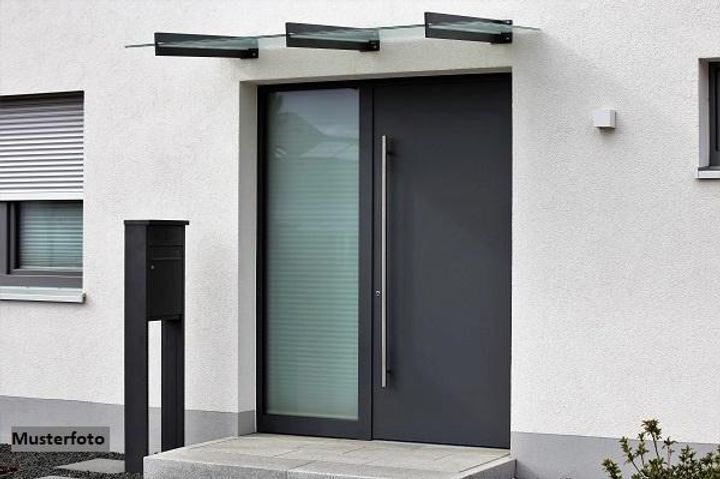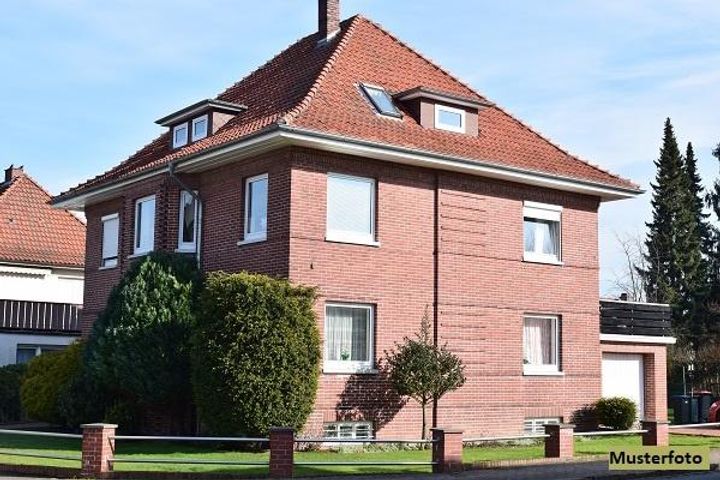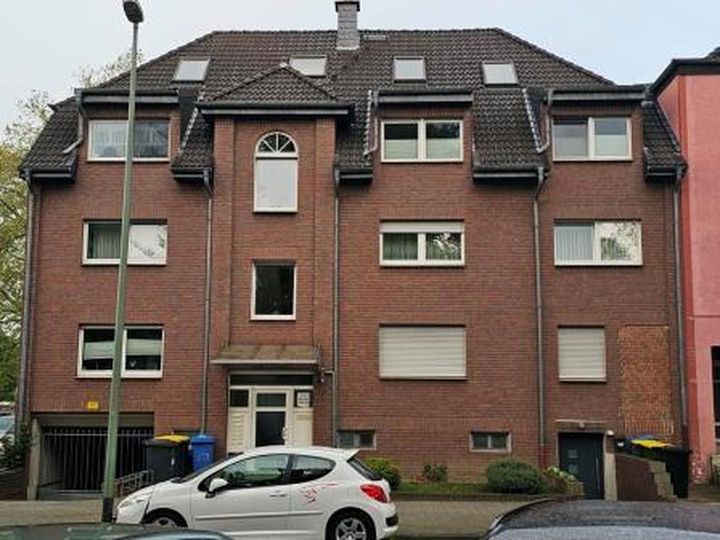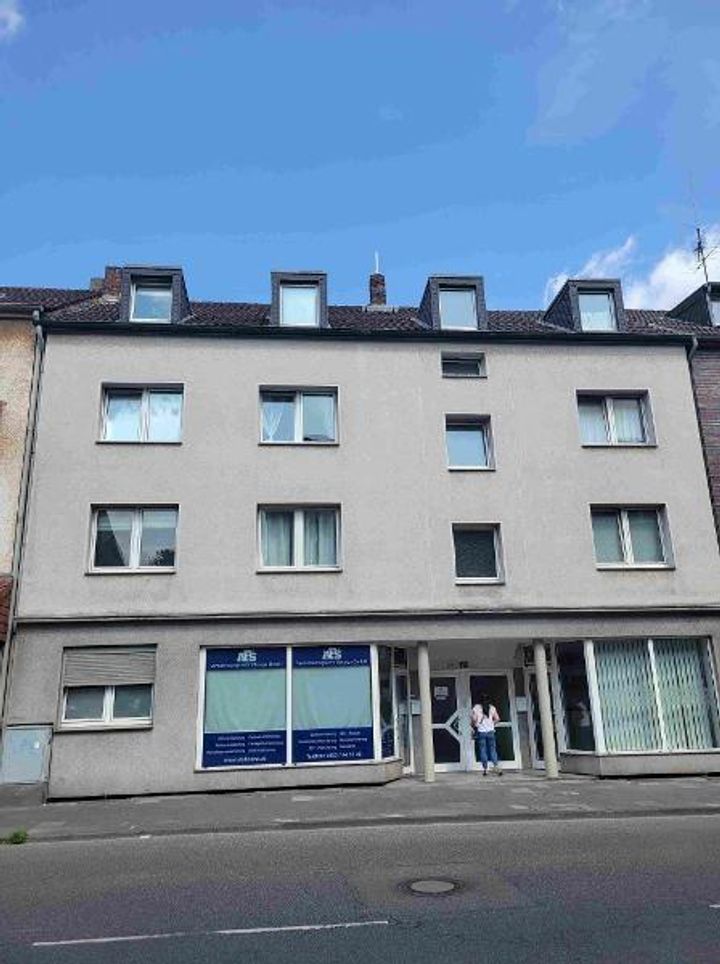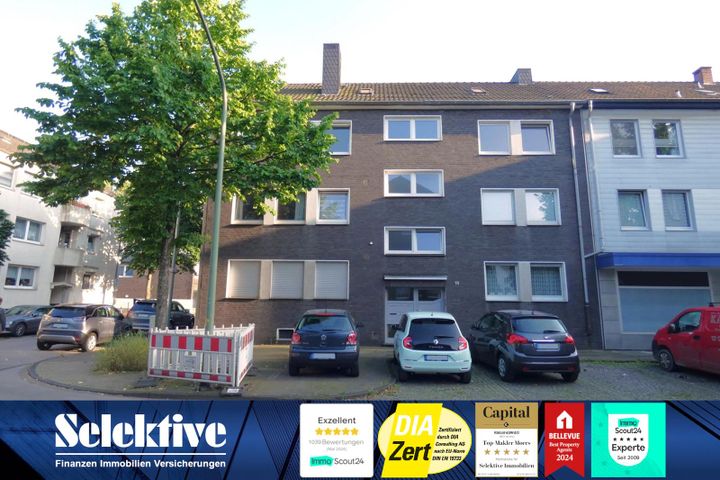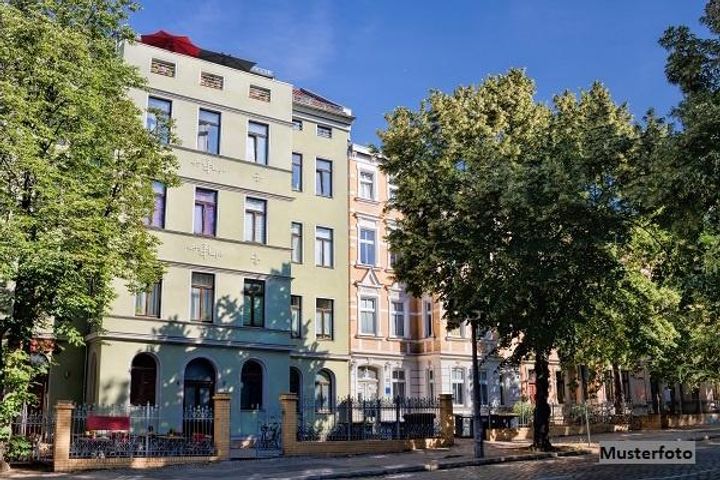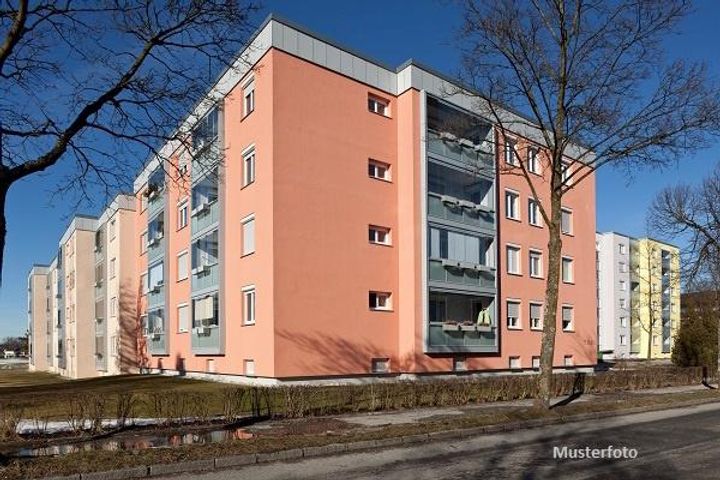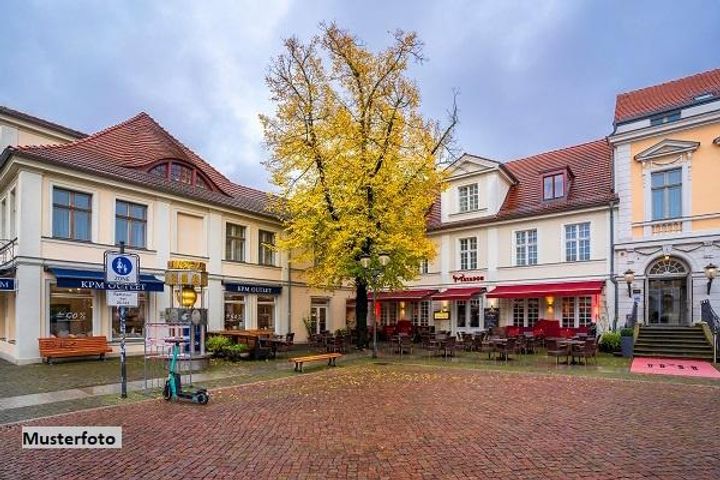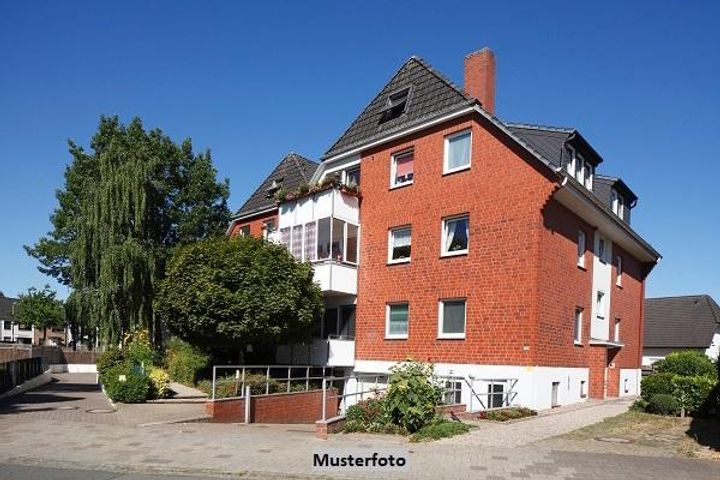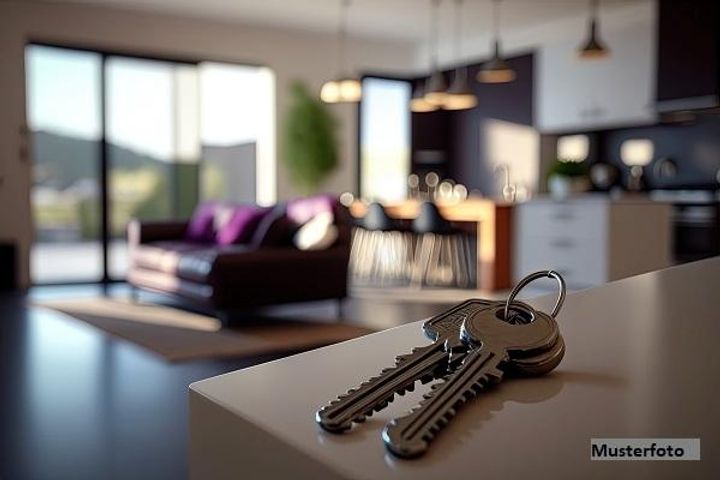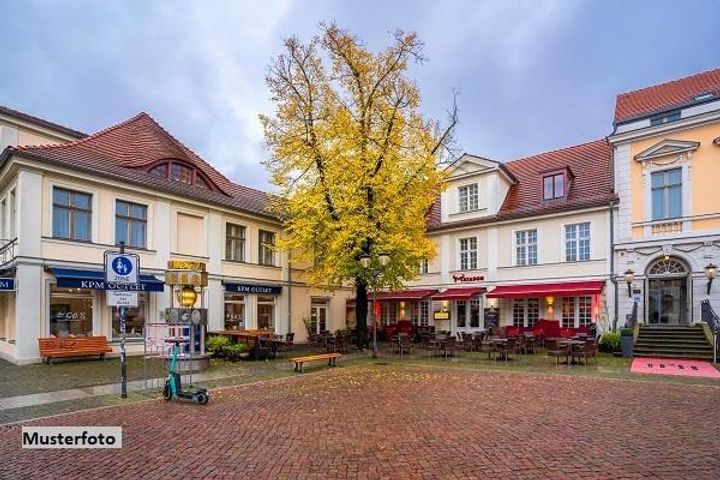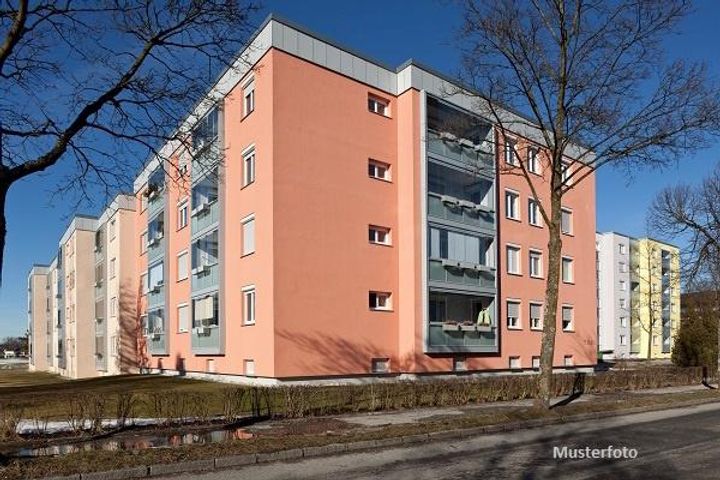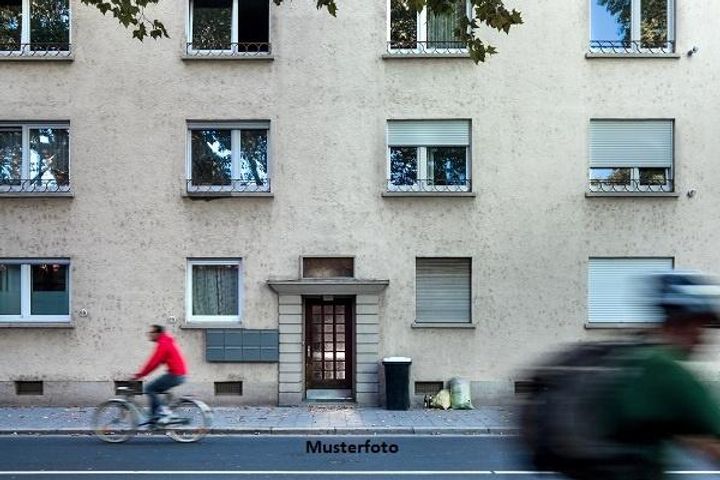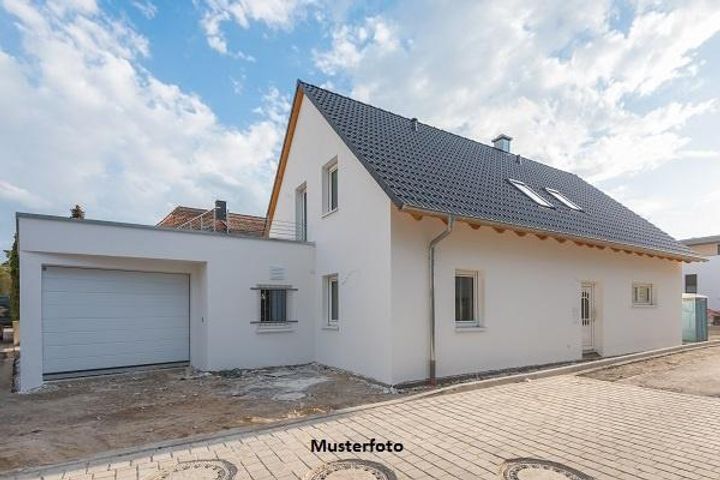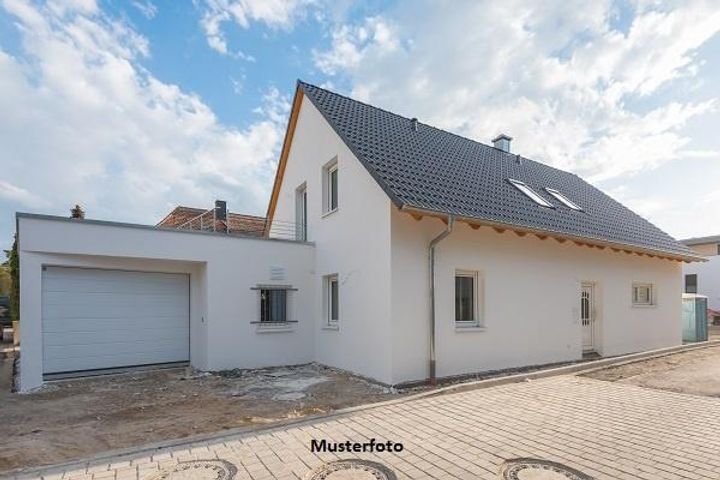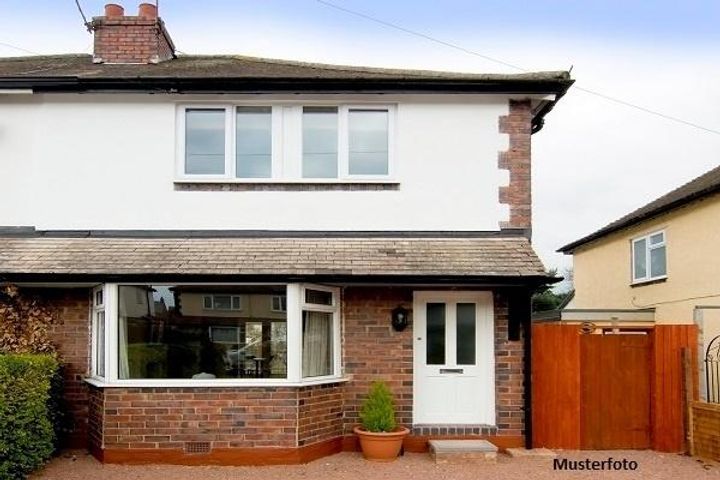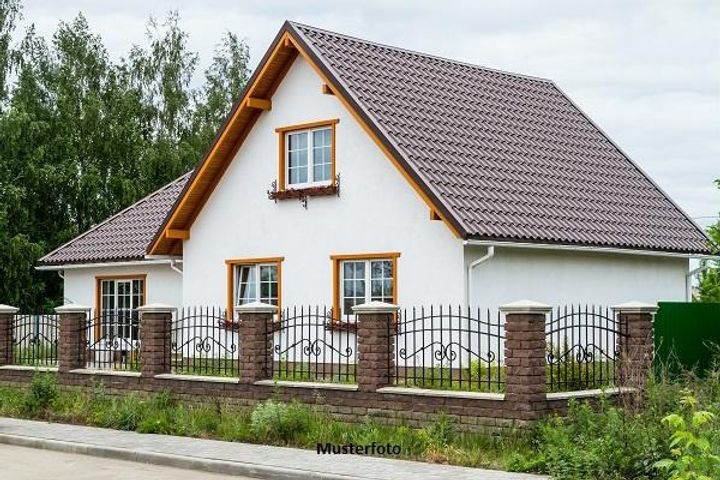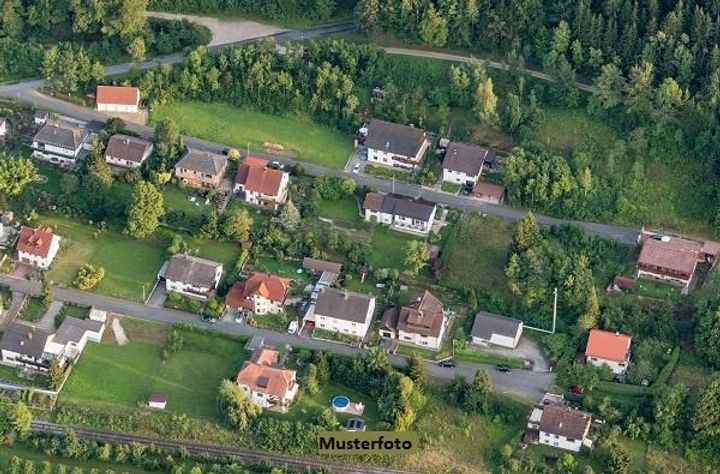The average price of homes in Duisburg, Germany can vary significantly depending on various factors such as location, size, and condition of the property. In general, the average price of homes in Duisburg is around €250,000 to €300,000. However, this price can be lower for smaller or older properties in less desirable areas, or higher for larger or newly renovated homes in upscale neighborhoods. For example, a small apartment in a less desirable neighborhood in Duisburg could sell for around €150,000, while a larger single-family home in a more upscale area could be priced upwards of €400,000 or more. Factors such as proximity to amenities, schools, and public transportation can also impact the average price of homes in Duisburg. Overall, Duisburg offers a wide range of housing options to suit different budgets and preferences, making it an attractive city for homebuyers looking for affordable options in a thriving urban environment.
Duisburg
Location
Price Range
Any price
Price Range
Minimum
No min
Maximum
No max
Property type
Show all
Property type
Show all
House
Apartment
Building
Other
Bedrooms
Any beds
Bedrooms
Minimum
No min
Maximum
No max
Surface Range
Any surface
Surface Range
Minimum
No min
Maximum
No max
Sale type
For sale
Sale type
Show all
To rent
For sale
Location
Apartments and houses for sale in Duisburg
162 results
Recent
Duisburg insights
| Aspect | Summary |
|---|---|
| Population | 500,000 |
| Average Property Price | €2,500/m² |
| Rental Yield | 6.5% |
| Average Rent | €10/m² |
| Occupancy Rate | 90% |
| Capital Growth Rate | 3% annually |
| Property Tax | 3.5% |
| Transaction Costs | 7% (including Notary and Registration fees) |
| Expected ROI | 8-10% |
| Economic Growth Impact | Stable and growing due to industry and logistics development |
Duisburg FAQ
What is the average price of homes in Duisburg?
What are some popular neighborhoods in Duisburg?
One popular neighborhood in Duisburg is Meiderich, known for its industrial history and diverse population. The neighborhood features several historic buildings, including the Landschaftspark Duisburg-Nord, a former ironworks turned public park. Meiderich also has a vibrant market square with a variety of shops and restaurants, making it a popular destination for locals and tourists alike. Another sought-after neighborhood in Duisburg is Ruhrort, located along the Rhine River. This neighborhood is known for its picturesque waterfront views and charming cobblestone streets. Ruhrort is home to several historic buildings, such as the world's largest inland port and the Duisburg Inner Harbor. The neighborhood also offers a variety of cultural attractions, including museums, galleries, and theaters, making it a hub for art and entertainment in the city. One more popular neighborhood in Duisburg is Wanheimerort, a residential area known for its peaceful atmosphere and green spaces. Wanheimerort is surrounded by several parks and gardens, such as Mattheiser Weiher and Wildpark Duisburg, providing residents with plenty of opportunities for outdoor recreation. The neighborhood also boasts a variety of amenities, including schools, shops, and restaurants, making it an ideal place for families and professionals to live.
What is the average size of homes in Duisburg?
The average size of homes in Duisburg varies depending on the specific neighborhood or area. In general, the most common size for a standard single-family home in Duisburg is around 100-150 square meters. This is considered to be a comfortable size for a typical family, providing enough space for bedrooms, living areas, and maybe a small garden or outdoor space. However, there are also larger homes available in Duisburg, particularly in more affluent neighborhoods. These homes can range from 200-300 square meters or more, offering more bedrooms, bathrooms, and living space. On the other end of the spectrum, there are also smaller homes and apartments available in Duisburg, particularly in denser urban areas, which can range from 50-80 square meters. Overall, the average size of homes in Duisburg reflects the diverse housing options available in the city, catering to a range of preferences and budgets. Whether looking for a cozy apartment or a spacious family home, residents of Duisburg can find a variety of options to suit their needs.
Are there any upcoming developments in Duisburg?
In Duisburg, there are several upcoming developments that are set to transform the city in the near future. One of the major projects underway is the Duisburg Inner Harbour Development, which aims to revitalize the historic inner harbor area by creating a mixed-use waterfront district with residential, commercial, and recreational spaces. This project is expected to attract new businesses and residents to the area, boosting the local economy and providing much-needed amenities for the community. Another significant development in Duisburg is the construction of the new Mercator Quarter, a sustainable urban neighborhood that will feature energy-efficient buildings, green spaces, and pedestrian-friendly streets. The Mercator Quarter is designed to promote a healthy and environmentally conscious lifestyle, with a focus on reducing carbon emissions and improving air quality in the city. This project is part of Duisburg's efforts to become a more sustainable and livable city for its residents. Additionally, Duisburg is also seeing advancements in transportation infrastructure, with plans for the expansion of the city's tram network and the construction of new bike lanes and pedestrian pathways. These improvements will make it easier for people to get around the city without relying on cars, reducing traffic congestion and fostering a more active and healthy lifestyle for residents. Overall, these upcoming developments in Duisburg are set to enhance the city's quality of life and position it as a more attractive destination for residents and visitors alike.
What are the average home prices in Duisburg?
In Duisburg, the average home prices vary significantly depending on the specific district and type of property. As of 2023, the overall average price for residential properties in Duisburg is around €2,000 to €2,500 per square meter. However, this figure can fluctuate based on several factors such as location, property condition, and proximity to amenities and public transport. For instance, the more central districts, like Duisburg-Mitte, tend to have higher prices, often reaching up to €3,000 per square meter for modern apartments or renovated older buildings. In contrast, areas like Duisburg-Hamborn or Duisburg-Meiderich may offer lower prices, averaging between €1,500 and €2,000 per square meter, making them more accessible for first-time buyers or those looking for more budget-friendly options. Single-family homes and detached houses are also a significant part of the market in Duisburg. Prices for these properties can range widely; a family home in a suburban area may be listed for anywhere from €250,000 to €400,000, depending on the size and specific location within the city. Conversely, luxury homes in desirable neighborhoods, such as the waterfront areas near the Rhine, can command prices well over €600,000. Overall, potential buyers should actively monitor the local market as it can be quite dynamic, influenced by economic conditions and regional developments, including new infrastructure projects and improvements in local amenities. It's advisable for buyers to engage with local real estate agents for tailored insights into current trends and specific neighborhoods.
How do real estate prices in Duisburg compare to nearby cities?
Real estate prices in Duisburg tend to be more affordable compared to its neighboring cities, making it an attractive option for both homebuyers and investors. As of late 2023, the average price per square meter for residential property in Duisburg hovers around €1,800, which is notably lower than in cities like Düsseldorf or Essen. In Düsseldorf, for instance, the prices can range from €3,000 to €4,000 per square meter, reflecting its status as a major economic center in North Rhine-Westphalia. Similarly, Essen sees prices in the range of €2,200 to €3,000 per square meter, largely due to its ongoing urban development projects and proximity to industrial hubs. Neighborhoods within Duisburg showcase a wide variety of price points. For example, areas such as Duisburg-Hochfeld and Duisburg-Mitte offer properties at prices closer to the lower end of the spectrum, attracting younger buyers and those entering the market for the first time. In contrast, more upscale neighborhoods like Duisburg-Wedau see prices rise significantly, especially for houses near the Mühelnsee or with good connectivity to transportation. However, even in these desirable areas, prices tend to be easier on the wallet than similar properties in neighboring Düsseldorf or even Bochum, where average prices can go up to €2,700 per square meter. Investors are increasingly drawn to Duisburg due to its potential for growth. The city's significant redevelopment initiatives, including revitalizing the waterfront and improving public transport, promise long-term value appreciation. While nearby cities like Mönchengladbach and Krefeld have their own characteristics and charms, with Krefeld experiencing average prices similar to Duisburg but slightly higher in prime areas, Duisburg remains a competitive option for those seeking affordability without sacrificing accessibility to urban amenities. This price differentiation highlights the dynamics within this region, where economic factors and local investment strategies dictate the real estate landscape.
What factors influence real estate prices in Duisburg?
Real estate prices in Duisburg are influenced by several key factors, including location, infrastructure, economic conditions, and demographic trends. The city’s location within the Ruhr area, a historically industrialized region, offers both advantages and challenges. Areas closer to the city center, such as Innenhafen (Inner Harbor), have seen increases in property values due to redevelopment projects that attract businesses, residents, and cultural activities. Conversely, neighborhoods farther from the center, like Marxloh, face lower property values and higher vacancy rates, often influenced by perceptions of safety and desirability. Infrastructure plays a critical role in shaping real estate valuations. Duisburg boasts strong transport links, including the sizeable Duisburg port, one of Europe’s largest inland ports, which facilitates trade and logistics. This connection often drives demand for commercial real estate, particularly warehousing and distribution centers, thereby affecting residential prices nearby due to the influx of workers. Additionally, the expansions of public transport options, such as the U-Bahn and S-Bahn, enhance accessibility and can drive up property prices in surrounding neighborhoods. Economic conditions, including employment rates and income levels, significantly impact real estate prices. Duisburg has faced economic challenges following the decline of traditional industries like coal and steel. However, recent efforts to diversify the economy have resulted in growth in technology and service sectors, which can lead to increased demand for housing. An example is the establishment of the Duisburg Business Park, which has attracted companies and sparked interest in nearby residential developments. Demographic trends also play a role in influencing real estate markets. The city has seen population shifts, including an influx of younger professionals and families seeking affordable living options relative to larger cities like Düsseldorf or Essen. This demographic change can drive demand for certain types of housing, such as modern apartments or family homes in more suburban areas, leading to increased real estate prices in those segments. Simultaneously, an aging population may create opportunities in the market for retirement communities or care facilities, shaping demand in different ways.
Are property prices in Duisburg rising or falling?
In recent years, property prices in Duisburg have exhibited a complex trend influenced by various economic and social factors. After experiencing a downturn in the late 2000s and early 2010s, the market began showing signs of recovery, spurred by investments in infrastructure and urban development. The city's strategic location within the Ruhr area, known for its dense population and industrial heritage, has attracted new residents and businesses, contributing to a gradual increase in demand for residential properties. Data from local real estate reports indicates that average property prices have been on the rise, particularly in neighborhoods such as Duisburg-Hochfeld and Duisburg-Altstadt, where gentrification efforts are underway. The revitalization of these areas has not only improved the aesthetic appeal but also enhanced local amenities, making them more attractive to young families and professionals. In contrast, some peripheral districts, such as Duisburg-Mitte and parts of Duisburg-Ruhrort, still struggle with higher vacancy rates, leading to stagnant or even declining prices in those regions. It's noteworthy that the market is particularly sensitive to broader economic conditions. For instance, recent fluctuations in interest rates and shifts in Germany's overall housing market have had a direct impact on local property prices. The influx of individuals from larger cities, seeking more affordable housing options, has intensified competition for available homes in Duisburg, pushing prices up in certain sought-after areas while leaving others behind. Specific neighborhoods have seen price increases of up to 10% year-on-year, especially in the wake of enhanced public transport links, making the city more accessible. Additionally, government initiatives aimed at urban renewal and increasing housing supply could also affect price trajectories. Projects such as the transformation of former industrial zones into residential spaces are reshaping the landscape and driving up property values. However, the availability of affordable housing remains a pressing concern, as rapidly rising prices in popular areas may displace long-term residents and exacerbate issues related to housing affordability in the broader region.
What is the average price per square meter for apartments in Duisburg?
The average price per square meter for apartments in Duisburg varies depending on the specific district and the type of property. As of late 2023, the general price range for apartment real estate in Duisburg is between €1,500 and €2,500 per square meter. In more central and sought-after areas like Duisburg-Mitte, prices can soar to around €2,500 per square meter, particularly for modern developments or renovated historic buildings. In contrast, neighborhoods like Marxloh or Bruckhausen can have average prices closer to €1,200 per square meter, reflecting lower demand and older housing stock. For instance, a newly constructed two-bedroom apartment in the heart of Duisburg, equipped with contemporary amenities, might be listed at around €2,300 per square meter. On the other hand, a similar-sized apartment in an older building located in a less desirable area could be priced significantly lower, potentially under €1,800 per square meter, depending on its condition and proximity to public transportation. Variations also arise due to market trends and economic factors. For example, recent developments around the Duisburg harbor and improvements in local infrastructure have begun to influence property values, making areas like the inner city increasingly attractive for investment. Consequently, buyers may need to navigate rising prices as the demand for urban living increases. Moreover, data from real estate platforms indicates that the market is slightly more competitive, especially for well-maintained rentals near amenities such as parks, schools, and shopping centers. This reflects a shift in how potential tenants and homeowners perceive value in this evolving urban landscape.
How do location and neighborhood affect real estate prices in Duisburg?
Location and neighborhood play critical roles in shaping real estate prices in Duisburg, a city in the North Rhine-Westphalia region of Germany. Areas close to the city center, such as Duisburg Mitte, often command higher prices due to their accessibility to amenities, public transport, and a vibrant urban lifestyle. With the presence of shops, restaurants, and cultural facilities, properties in these central areas attract both investors and residents looking for convenience. For example, an apartment in Duisburg Mitte can be priced significantly higher than similar units located in the outskirts. Conversely, neighborhoods farther from the center, like Walsum or Meiderich, tend to have lower property values. These areas may offer larger living spaces and a more suburban feel, but they often lack the same range of amenities and public transport options. The industrial background of some districts may also deter potential buyers, impacting the overall attractiveness of these neighborhoods. For instance, properties near industrial zones might see slower appreciation rates compared to those situated in more residential areas. Safety and infrastructure also influence real estate prices in Duisburg. Neighborhoods with lower crime rates and well-maintained public services, such as education and transportation, typically enjoy higher property values. Areas like Homberg and Ruhrort, which are historically significant and have benefitted from urban renewal projects, have started to see price increases as they attract younger families and professionals. In contrast, neighborhoods that have not undergone similar development or face socio-economic challenges may struggle to enhance their real estate markets. Furthermore, proximity to green spaces, parks, and waterways plays an essential role in determining property values. Neighborhoods close to the Rhine River or those with access to recreational areas, such as the Duisburg Landscape Park, are often more desirable. These features can enhance the quality of life for residents, making them willing to pay a premium for properties in such locales. In contrast, areas devoid of natural amenities might be perceived as less attractive, leading to a stagnation in property prices.
What types of properties are most expensive in Duisburg?
In Duisburg, the real estate market has certain neighborhoods and property types that consistently command higher prices. Primarily, properties in the Innenstadt (city center) and well-established localities like Duisburg-Ruhrort and Duisburg-Hamborn tend to be more expensive. These areas benefit from their proximity to local amenities, cultural attractions, and public transportation, making them desirable for both families and young professionals. The cost of residential properties in Duisburg can vary significantly based on property type. High-end apartments, particularly those in modern complexes or refurbished historic buildings, often command premium prices. For instance, waterfront apartments along the River Ruhr or near the Duisburg Marina attract buyers willing to pay more for stunning views and an urban lifestyle. Similarly, luxury condominiums that feature contemporary design and amenities, such as concierge services and rooftop terraces, are also among the highest-priced properties in the city. Single-family homes in affluent neighborhoods like Mündelheim and Beeck are another category that drives up property prices. These family-oriented areas usually provide spacious homes, gardens, and a suburban feel, making them appealing for buyers looking for quieter surroundings away from the hustle of city life. Properties here, especially those with modern updates or energy-efficient features, can exceed average market prices significantly. Finally, commercial properties, particularly those in strategic locations with high foot traffic—like retail spaces and office buildings in the city center—also reflect higher valuations. The redevelopment of old industrial sites or warehouses into trendy spaces for startups or boutiques further enhances the commercial property market. Investors are particularly interested in these types of properties due to their potential for generating rental income and long-term appreciation.
